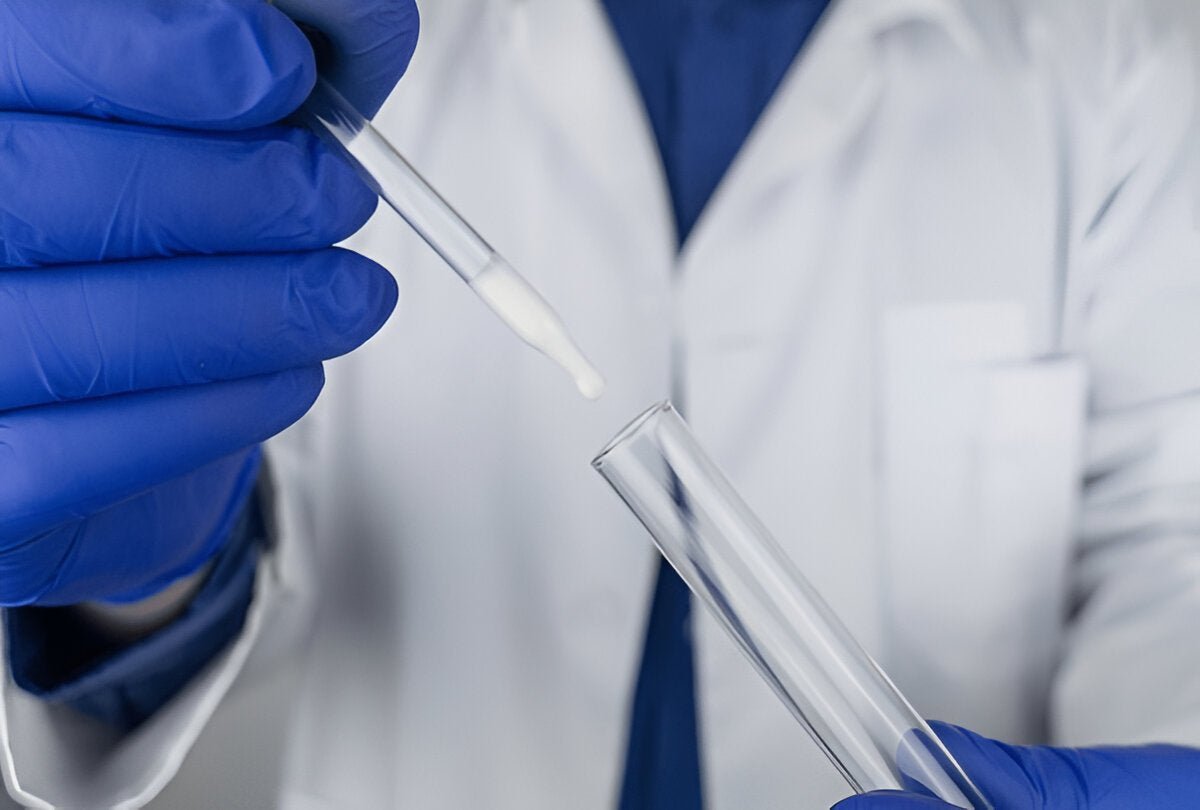What Does Prostate Fluid Look Like and Does the Prostate Produce Sperm

So, let’s talk about the prostate and fertility. If you're asking what does prostate fluid look like, it's normal to be curious about this. It's an important question, especially if you and your partner are trying to conceive. The prostate gland plays a pretty big role in male fertility, even if it doesn’t make sperm directly. Let’s explore the details, shall we?
What Does Prostate Fluid Look Like?
Alright, so what exactly does prostate fluid look like? It’s a thin, milky fluid. Pretty clear or maybe slightly cloudy sometimes. This fluid mixes with sperm during ejaculation to create semen. The main job of this fluid is to keep the sperm healthy and protect it while it makes its way through the reproductive system [1].
Prostate fluid contains nutrients, like zinc and citric acid, which help sperm survive longer [2]. It also helps neutralize the acidic environment of the vagina so that sperm has a better chance to reach the egg. So, even though it seems like a small thing, this fluid is crucial for sperm health. It's not something people usually talk about, but it’s pretty important when you're looking at fertility.
Does the Prostate Produce Sperm?
Now, to answer another big question: does the prostate produce sperm? Nope, it doesn’t. The prostate’s job is to produce fluid, but the actual sperm comes from the testes. Sperm is created in the testes and then mixes with the fluid that the prostate and other glands produce. If you're curious about when males start producing sperm, understanding at what age can males produce sperm can offer valuable insights into male fertility. So, while the prostate gland does not produce sperm, it still plays a major role in making sure sperm can survive and do its job [3].
Basically, without this prostate fluid, sperm would struggle to make it to the egg. The fluid helps with sperm movement and gives it the best environment to reach its goal, so to speak.
Prostate Fluid Release and How it Works
Prostate fluid release happens during ejaculation. When a man reaches orgasm, the prostate contracts and releases fluid into the urethra. Here, it mixes with sperm from the testes and fluid from the seminal vesicles, creating semen. The prostate’s fluid makes up a significant part of the semen, and it helps sperm move more easily [4].
This release is important for making sure sperm has a smooth ride. Without it, the sperm wouldn’t have the necessary environment to swim and survive. And trust me, they need all the help they can get to reach that egg!
Nutrients That Boost Prostate Health and Fertility
Keeping the prostate healthy is key to good fertility. There are some really important nutrients that play a role in this. Magnesium and calcium, for example, are critical for healthy prostate fluid release. They help with sperm motility, meaning they help sperm swim better [5].
Then there's zinc. Zinc is super important for sperm development, and it also helps regulate testosterone levels. A good balance of testosterone is crucial for overall reproductive health. Plus, antioxidants like CoQ10 and Vitamin E help protect sperm from damage, which boosts fertility even more [6].
L-arginine is another helpful ingredient. It promotes blood flow to the reproductive organs, which supports both prostate function and sperm health [7]. So, all these nutrients together? They really can improve your chances of conception. Using fertility supplements, like those from Conceive Plus, can help enhance sperm health and increase chances of conception.
Top Tip: Watch Your Diet
Eating foods rich in zinc, magnesium, and Vitamin E can do wonders for your prostate and sperm health. A balanced diet can really make a difference!
The Bottom Line
So, what does prostate fluid look like? It’s a vital part of semen, even though the prostate does not produce sperm. The prostate contributes fluid that helps sperm survive and move toward the egg. By keeping the prostate healthy and ensuring you're getting the right nutrients, you can increase your chances of conceiving. Prostate health plays a bigger role in fertility than most people realize, and although does the prostate gland produce sperm might seem like a simple question, understanding its function helps shed light on its importance.
FAQs
Does prostate fluid affect sperm quality?
Yes, the quality of prostate fluid is crucial for sperm movement and survival. It affects overall fertility.
Is prostate fluid the same as sperm?
Nope. Prostate fluid is part of semen, but sperm is produced in the testes.
What should prostate fluid look like?
It’s usually a thin, milky white or clear fluid. Any drastic changes should be checked by a healthcare provider.
Can prostate issues impact fertility?
Yes, problems like an enlarged prostate or infections can reduce fertility by affecting prostate fluid quality.
How can I improve prostate function naturally?
A healthy diet rich in antioxidants, zinc, and magnesium can support prostate health and improve fertility.
Citations
- Ritz, E. DIAGNOSING PROSTATITIS. The Lancet. Available at: https://www.thelancet.com/journals/lancet/article/PIIS0140-6736(83)91877-9/fulltext
- Carlsson SV, Vickers AJ. Screening for Prostate Cancer. Med Clin North Am. Available at: https://pubmed.ncbi.nlm.nih.gov/33099450/
- Potosky AL, Miller BA, Albertsen PC, Kramer BS. The role of increasing detection in the rising incidence of prostate cancer. JAMA. Available at: https://pubmed.ncbi.nlm.nih.gov/7530782/
- McNeal JE. The zonal anatomy of the prostate. Prostate. Available at: https://pubmed.ncbi.nlm.nih.gov/7279811/
- Zhang Y, Coogan P, Palmer JR, Strom BL, Rosenberg L. Vitamin and mineral use and risk of prostate cancer: the case-control surveillance study. Cancer Causes Control. Available at: https://www.ncbi.nlm.nih.gov/pmc/articles/PMC2755205/
- Hine C, Harputlugil E, Zhang Y, Ruckenstuhl C, Lee BC, Brace L, Longchamp A, Treviño-Villarreal JH, Mejia P, Ozaki CK, Wang R, Gladyshev VN, Madeo F, Mair WB, Mitchell JR. Endogenous hydrogen sulfide production is essential for dietary restriction benefits. Cell. Available at: https://pubmed.ncbi.nlm.nih.gov/25542313/
- Rabanal-Ruiz Y, Llanos-González E, Alcain FJ. The Use of Coenzyme Q10 in Cardiovascular Diseases. Antioxidants (Basel). Available at: https://www.ncbi.nlm.nih.gov/pmc/articles/PMC8151454/













